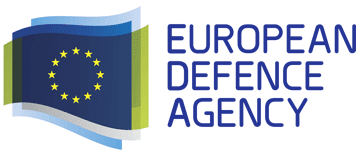
UBITECH is proud to announce its selection as the coordinator for two groundbreaking initiatives funded by the European Defence Fund (EDF) following the 2023 Call for Proposals. These initiatives, SEQURED and TRITON, reflect UBITECH’s commitment to advancing cyberdefense technology in the face of emerging global threats.
SEQURED: Strengthening Defense Networks for the Quantum Era
The first initiative, SEQURED (Strengthening Defense Networks for the Quantum Era), aims to address critical gaps in the post-quantum cybersecurity landscape. This project focuses on identifying vulnerabilities, particularly those related to physical threats and side-channel attacks, and developing quantum-resistant solutions. By leveraging a software/hardware co-design approach, SEQURED seeks to enhance security and acceleration capabilities.
The project’s primary objectives include:
– Advancing quantum security methods from both software and hardware perspectives.
– Developing easily adoptable and integrable solutions for legacy systems and defense organizations.
– Fortifying existing infrastructures against the looming threat of quantum computing.
Considering the above, SEQURED will result in: a) the development of fully-fledged designs and operational implementations of Post-Quantum Cryptographic (PQC) algorithms and creation of an SDK tailored towards military equipment and devices with limited computational capabilities, leveraging a novel SW/HW-co-design approach supported by a HW-based Trusted Computing (TC) extension and offering “Post-Quantum-as-a-Service” features; b) the development of accelerations and optimisations for the four quantum-resistant encryption and signature algorithms selected by NIST (CRYSTALS-Kyber, CRYSTALS-Dilithium, FALCON, and SPHINCS+); c) the design and implementation of a quantum-secure Blockchain ledger (QR-Ledger), in order to support the storage of data in a quantum-secure manner, while also ensuring the auditability and certifiability of all secure operations performed within a system, accompanied by a set of advanced quantum-resistant access control schemes, including Attribute-Based Encryption (ABE), Identity-Based Encryption (ABE), and Attribute-Based Access Control; d) the adoption of the Zero-Trust paradigm for secure path establishment, implementing a continuous device attestation and trust verification mechanism for all nodes along a communication path, in order to verify that each node is in a correct and trusted configuration state and has not been compromised by a malicious third party; and e) the design and development of a crypto asset inventorying, enabling defence organisations to create an inventory of existing cryptographic assets, including information on running processes, cryptographic algorithms employed, key sizes, and total number of keypairs employed during the system’s lifetime.
SEQURED is set to push the boundaries of quantum cybersecurity, providing defense organizations with the tools necessary to safeguard critical infrastructure in the quantum era.
TRITON: Generative Automation of Security Penetration Tests
The second initiative, TRITON (Generative Automation of Security Penetration Tests), envisions a revolutionary approach to defense-focused penetration testing. This project aims to automate the entire penetration testing process using AI-driven tools and stochastic decision processes. By integrating Generative Adversarial Networks (GANs) and the Human-as-a-Security-Sensor (HaaSS) concept, TRITON will transform cybersecurity assessments and optimizations.
Key features of TRITON include:
– Employing partially observable Markov chain Monte Carlo (MCMC) decision processes to uncover hidden attack paths.
– Integrating secure-ops paradigms with renowned pentesting frameworks (e.g., Kali Linux, Metasploit, Nmap).
– Focusing on diverse applications, including military Security Operation Centres (SOCs), web, cloud, telecom, and wireless networks.
– Utilizing the HaaSS concept to enable continuous monitoring, predictive analysis, and enforcement of security policies.
TRITON aims to build a comprehensive array of tools and strategies for next-generation ICT systems and networks, enabling large-scale, AI-driven security tests. The initiative will also incorporate post-penetration testing using intelligent game theory methods to assess and mitigate risks and vulnerabilities.
By securing these prestigious EDF initiatives, UBITECH continues to demonstrate its leadership in the field of cybersecurity and defense technology, reinforcing its position in the European defense landscape.



